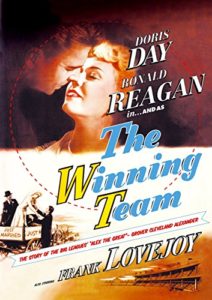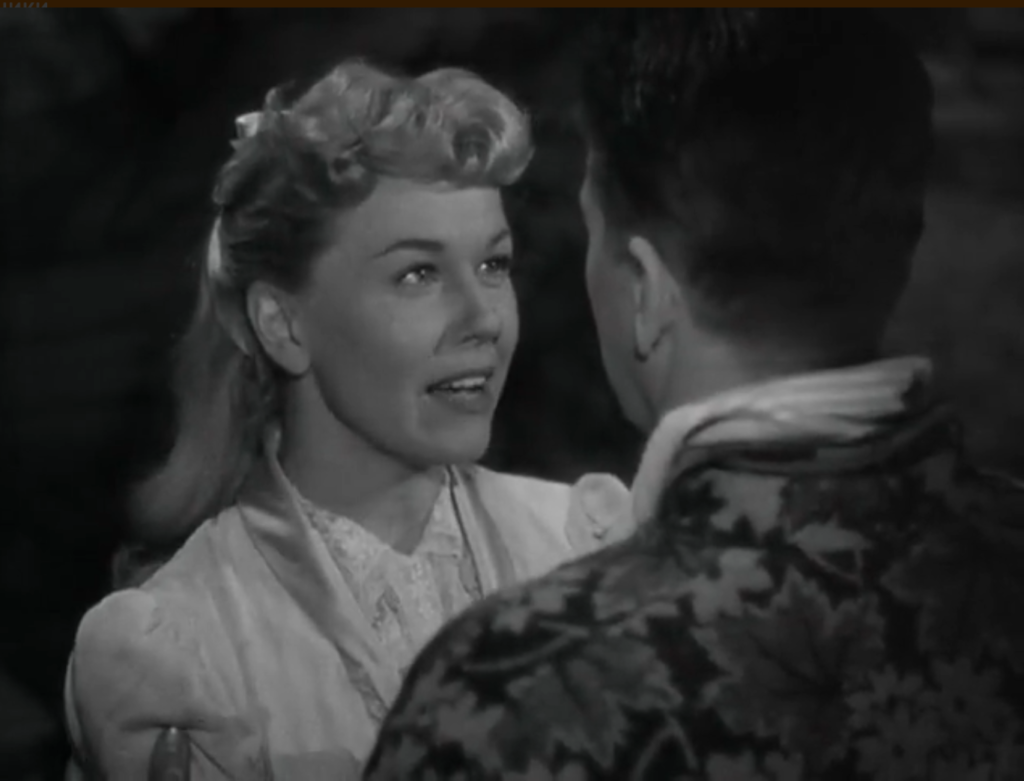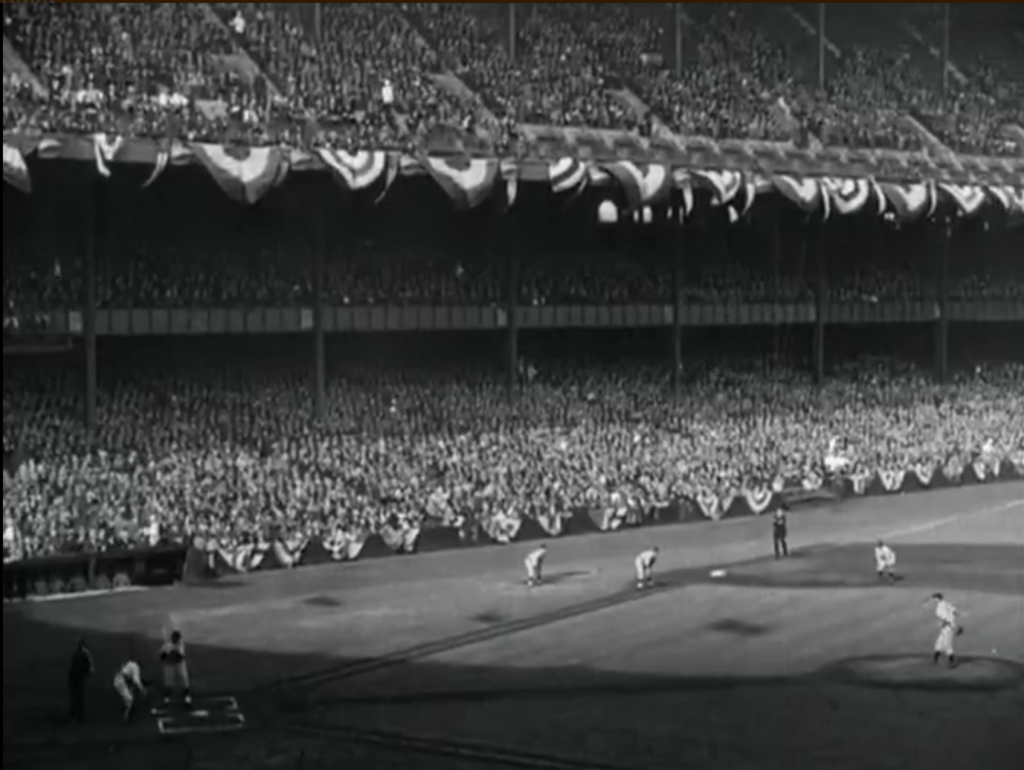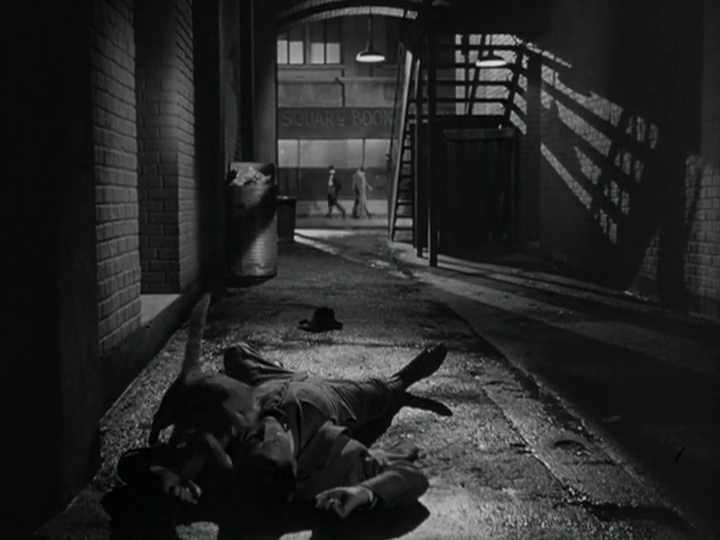“It isn’t enough that I believe in him — baseball’s got to believe in him, too.”
|

Synopsis:
Farmer-turned-pitcher Grover Cleveland Alexander (Ronald Reagan) finds support from his loving wife (Doris Day) while pursuing a career in major league baseball — but after being hit in the head, his vision and stability are never quite the same. Will Alexander be able to make a come-back?
|
|
Genres, Themes, Actors, and Directors:
- Baseball
- Biopics
- Doris Day Films
- Rise-and-Fall
- Ronald Reagan Films
Review:
This unexceptional biopic about Baseball Hall-of-Famer Grover Cleveland Alexander is likely included in Peary’s GFTFF (1986) both because it starred then-president Ronald Reagan in one of his final roles before turning to politics, and because it centered on Peary’s favorite sport. Unfortunately, Alexander’s tragically complicated story — involving an early work-place accident, war-induced PTSD, alcoholism, and unacknowledged epilepsy — is framed as a dual tale of “never give up” can-do-ism and selfless marital support (together, Reagan and Day are a “winning team”).

Baseball fans will likely enjoy seeing numerous cameos by real-life stars — as well as footage from the 1926 World Series, featuring Babe Ruth — but others needn’t bother seeking this one out.

Redeeming Qualities and Moments:
- Sidney Hickox’s cinematography


Must See?
No; you can skip this one.
Links:
|





One thought on “Winning Team, The (1952)”
First viewing – not must-see, though it will be of interest to those who follow baseball history.
As biopics go, this one (although competently acted and directed) is a little too standard for my personal liking. Wikipedia tells us it’s fictionalized but it doesn’t say by how much.
The film doesn’t indicate that Alexander was an alcoholic – instead, it presents him (whether it was true or not) as a guy who, at one point, may have drowned his sorrows due to the condition (epilepsy) which, at the time, was not sufficiently understood by doctors. The lack of information about epilepsy is what gives the film its most compelling aspect.
This wasn’t one of Reagan’s final roles for the big screen. He would continue acting for over another 10 years (though mostly turning to television). His last major film role was in Don Siegel’s ‘The Killers’ (1964). It’s certainly understandable if – considering his disastrous legacy as POTUS – viewers feel somewhat queasy when watching a Reagan performance. I certainly do.